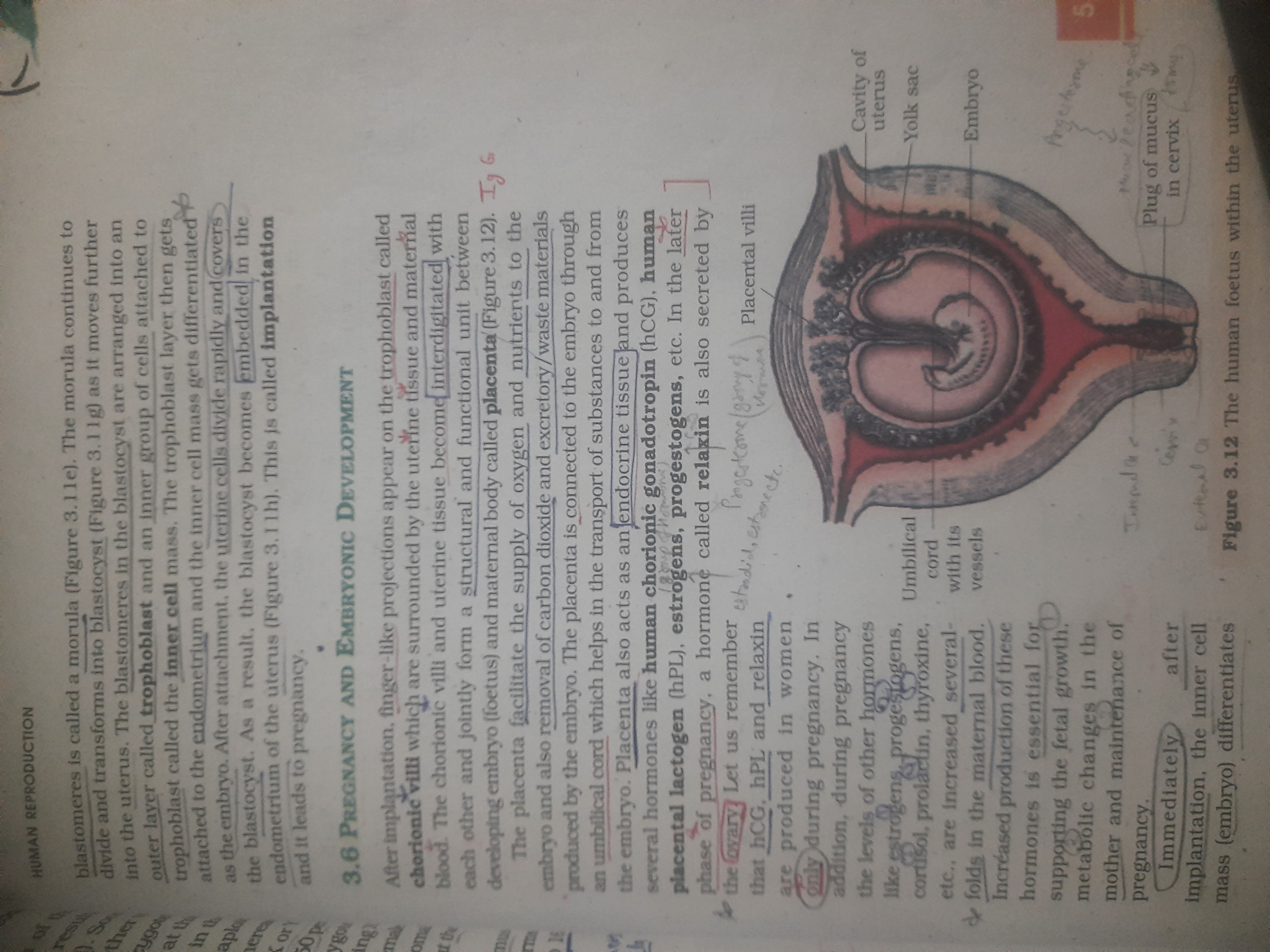What are the key processes and hormone roles in human pregnancy and embryonic development after implantation?

Understand the Problem
The question pertains to human reproduction and embryonic development, specifically examining the processes involved after implantation, the role of the placenta, and the hormones produced during pregnancy.
Answer
After implantation, chorionic villi and placental development occur with the help of key hormones such as hCG, hPL, and relaxin.
After implantation, the chorionic villi form on the trophoblast and interact with the uterine tissue to support the developing embryo through the placenta. Key hormones involved are human chorionic gonadotropin (hCG), human placental lactogen (hPL), and relaxin. These hormones support the maintenance of pregnancy and fetal development.
Answer for screen readers
After implantation, the chorionic villi form on the trophoblast and interact with the uterine tissue to support the developing embryo through the placenta. Key hormones involved are human chorionic gonadotropin (hCG), human placental lactogen (hPL), and relaxin. These hormones support the maintenance of pregnancy and fetal development.
More Information
Human chorionic gonadotropin (hCG) sustains the corpus luteum, which is vital for producing progesterone. Human placental lactogen (hPL) supports fetal development and alters maternal metabolism. Relaxin aids in preparing the cervix and the birth canal.
Tips
A common mistake is to overlook the role of the placenta and the trophoblast in hormone production and embryonic support.
Sources
- Endocrinology of Pregnancy - Endotext - NCBI Bookshelf - ncbi.nlm.nih.gov
- Hormones During Pregnancy - Johns Hopkins Medicine - hopkinsmedicine.org
- A Review of Mechanisms of Implantation - PMC - NCBI - ncbi.nlm.nih.gov
AI-generated content may contain errors. Please verify critical information